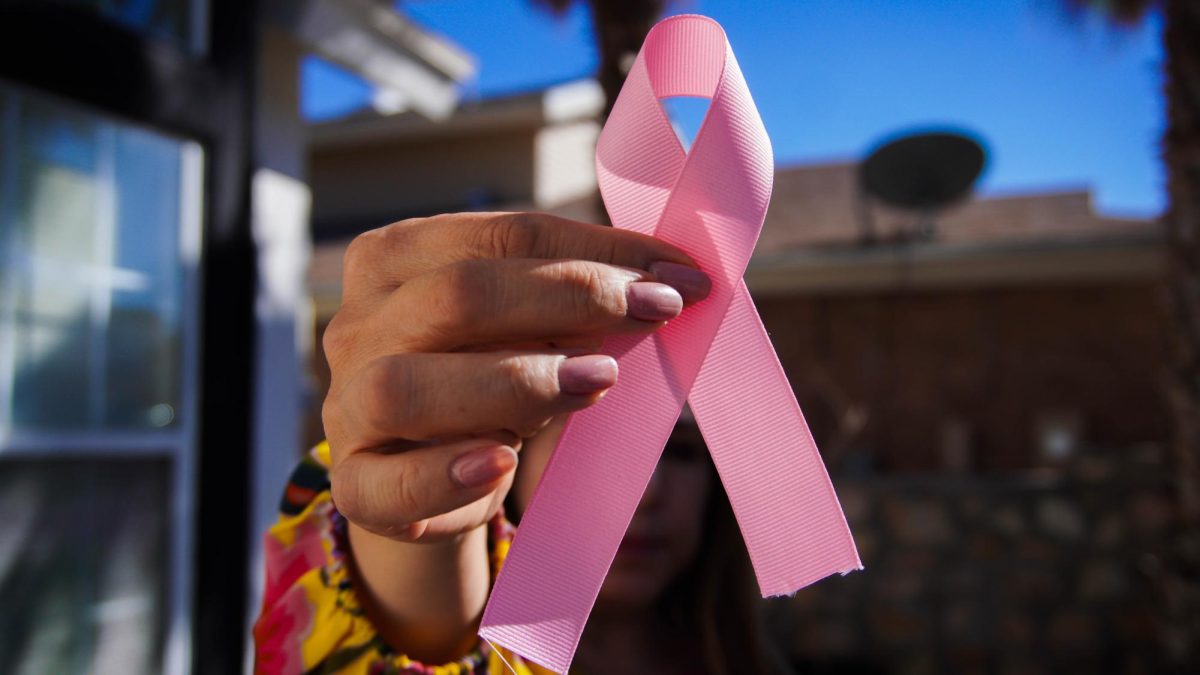October marks Breast Cancer Awareness Month, a time to educate women about the risks, symptoms, and prevention of this disease.
As communities come together to raise awareness, medical professionals emphasize the critical role of early detection and lifestyle choices while combating this cancer and learning about its misconceptions.
Dr. Jennifer Molokwu, a professor of Family and Community Medicine and director of the Cancer Prevention and Control Program at Texas Tech University Health Sciences Center (TTUHSC), explains that the most significant risk factor for breast cancer is family history.
According to the National Breast Cancer Foundation (NBCF), every person carries the breast cancer genes known as BRCA1 and BRCA2. However, these genes do not cause cancer, rather they help repair DNA breaks that can lead to cancer.
A gene mutation in .25% of the population causes the gene to not function properly. People with a BRCA gene mutation are more likely to develop breast cancer, develop it at a younger age, and pass it down to their offspring.
Certain demographics, including African American women, face higher risks due to their genetics followed by white non-Hispanic women according to Dr. Molokwu.
Asian and Pacific Islander women are more likely to be diagnosed with localized breast cancer than African American, Hispanic and Native American women according to the American Cancer Society.
While genetics play a role in the risk of breast cancer, Dr. Molokwu emphasizes that family history is not the only factor women should look at as lifestyle choices also play a role in breast cancer risk.
“There are other things that we know increase our risk of getting breast cancer,” said Molokwu. “Things like having excess weight, poor nutrition, lack of exercise, smoking history and alcohol use.”
Maintaining a healthy weight and staying active are especially important as many breast cancers are hormone dependent. Hormones, particularly estrogen, can increase the risk of breast cancer and excess weight can lead to increased estrogen production.
Dr. Molokwu shares that a common misconception is that while rare, breast cancer can occur at any age, so getting checkups is a better option than ignoring signs and waiting for the cancer to spread.
Breast cancer screening through mammograms can be a key step in early detection. Dr. Molokwu explains that early detections can increase the survival rate.
“When breast cancer is localized, meaning it’s just in the breast and nowhere else have a 97% survival rate in the next five years,” said Molokwu. “If breast cancer has spread to areas close to the breast, that falls to 87%. If it spreads to the lungs, to the bones, any other part of the body, that survival rate falls all the way down to 35%.”
Women can also look for specific symptoms during self-examinations. Dr. Molokwu advises women to contact a health provider if they notice distinct lumps, thickening of skin, dimples on thick skin, or discharge of blood from the breasts.
A breast cancer diagnosis also comes with an emotional toll which involves not only physical challenges but also concerns about identity and future wellbeing.
“Once you tell somebody the ‘C’ word, cancer, it’s devastating because a lot of people, what they see is death,” said Molokwu. “They hear cancer and what they hear is that we’ve come to the end.”
For women specifically, Dr. Molokwu shares that treatment can be difficult as not only do they see the toll on their bodies from chemo, the loss or hair and breasts impacts their identity as women.
The most important message of hope for women according to Dr. Molokwu is that with early detection there is a high survival rate and that there is a lot of support for women who are diagnosed.
TTUHSC offers various programs for women searching information of prevention and treatment, including free breast cancer screenings for insured and uninsured patients and education program initiative funded by the Cancer Prevention Research Institute of Texas.
Breast Cancer Awareness Month serves as a reminder to prioritize health, early detection and healthy lifestyle choices. Through education, women can take steps towards reducing their risk or improving the outcomes in the fight against breast cancer.
Ximena Cordero is a staff reporter and may be reached at [email protected]









